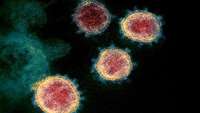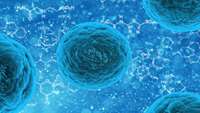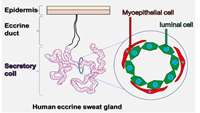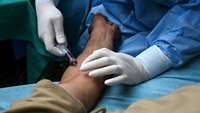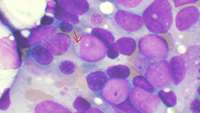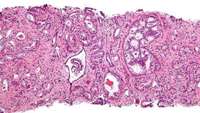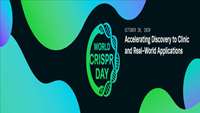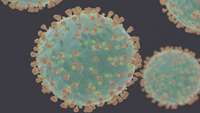Scientists uncover proteins essential for memory B cell survival
Signals from two key proteins are essential for the survival of our 'immunological memory', according to new research from scientists at the Francis Crick Institute, published in theJournal of Experimental Medicine.
New drug candidate for the treatment of COVID-19
Researchers from the University of Kent, the Goethe-University in Frankfurt am Main (Germany), and the Hannover Medical School (Germany) have identified a drug with the potential to provide a treatment for COVID-19.
Researchers devise approach to treat rare, incurable form of blindness
Best vitelliform macular degeneration, or Best disease, is an inherited eye condition that typically leads to blindness over the course of a few decades. The disease can be caused by more than two hundred mutations in the BEST1 gene.
Perspiration problems No sweat!
Solving sweat-related concerns that occur in daily life, such as hyperhidrosis and sweat smell, can improve people's quality of life. Now, researchers from Osaka University, in collaboration with Mandom Corporation, have succeeded in generating immortalized human eccrine sweat gland myoepithelial cells (iEM cells). Their findings could help develop next-generation antiperspirants and promote research on sweat dysfunction and sweat gland regeneration.
Convalescent plasma of limited use for COVID-19: study
Leukemia frequently originates from the so-called leukemic stem cell, which resides in a tumor promoting and protecting niche within the bone marrow. Plasma taken from the blood of people who have recovered from COVID-19 and given to people sick with the disease does not reduce their chances of getting seriously ill or dying, new research has found. The findings are from one of the first clinical trials to report the effects of convalescent plasma, which has been given emergency approval in countries including India and the United States.
New therapeutic approach against leukemia
Leukemia frequently originates from the so-called leukemic stem cell, which resides in a tumor promoting and protecting niche within the bone marrow. Scientists from the Max Planck Institute of Biochemistry in Martinsried, Germany, have found a new way to make these cells vulnerable by specifically dislodging these cells from their niches.
A new way to personalize treatments for prostate cancer
Rutgers researchers have discovered human gene markers that work together to cause metastatic prostate cancer—cancer that spreads beyond the prostate.
World CRISPR Day 2020
World CRISPR Day brings together the entire genome engineering community to discuss how we can safely enable discovery, therapeutics, and practical applications.
Pinpointing the 'silent' mutations that gave the coronavirus an evolutionary edge
We know that the coronavirus behind the COVID-19 crisis lived harmlessly in bats and other wildlife before it jumped the species barrier and spilled over to humans.



